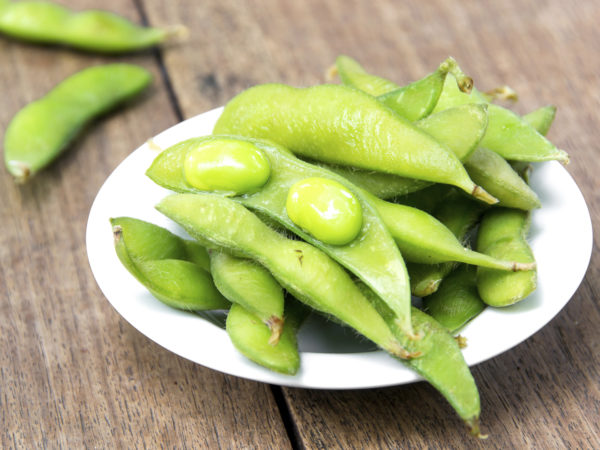Whey Better Protein?
Do you suggest vegetarians include whey protein powder in their daily diets? If not, are other protein sources you recommend for vegetarians? Under what circumstances would you recommend whey protein?
Andrew Weil, M.D. | October 17, 2013

Whey is one of two dairy proteins. The other, casein, can irritate the immune system and stimulate mucus production, worsening allergy symptoms. This reaction to casein is why cow’s milk consumption is associated with recurrent childhood ear infections, eczema, chronic bronchitis, asthma, and sinus conditions. People who have autoimmune diseases or digestive problems may find that their symptoms improve when they eliminate cow’s milk and milk products.
Whey protein constitutes about 20 percent of total milk protein. It is commercially separated out from casein and isolated to make the various whey protein products now on the market (everything from powders to protein drinks and bars). If you’re lactose intolerant – that is, if you develop digestive symptoms after eating dairy products – you may or may not have problems with whey protein products depending on the amount of lactose they contain. And if you’re allergic to milk protein, it is important to know whether the troublemaker is casein or whey before using whey protein products.
I do not recommend whey protein powder, or any protein powder, for vegetarians or anyone else. It is just not necessary. Many people – vegetarian or not – worry that they’re not getting enough protein and believe that meals should be built around a big serving of it. Becoming a vegetarian means unlearning the habit of organizing meals around centerpieces of meat and poultry and becoming acquainted with the wide variety of satisfying protein-rich dishes that can be made from non-animal food sources.
I recommend dividing your daily calories as follows: 40 to 50 percent from carbohydrates (including vegetables, fruit, whole grains, starchy roots and tubers, and legumes), 30 percent from fat, and 20 to 30 percent from protein, which amounts to between 100 and 150 grams (about 3.5 to 5.3 ounces) on a 2,000 calorie-a-day diet. The main protein source I recommend for vegetarians is whole soy. Whole soy foods, including tempeh and tofu, are excellent sources of protein that are nutritionally equivalent to the protein you would get from meat, chicken, fish or eggs. My favorite ways to consume soy include snacking on edamame (green soybeans), adding tofu to stir-fries, and using smoked tempeh strips as an alternative to bacon. Substituting soy protein for animal protein is a healthy change I would like to see more people make, although you should use only organic, whole soy foods and avoid soy isolates and supplements.
As for whey itself, if you’re not allergic to it, you can use what you drain out of yogurt (when you’re thickening yogurt to make a dessert such as Persian Rose-Water Pudding), mixing it into drinks or juice, or drinking it straight.
Andrew Weil, M.D.









